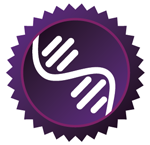
Cambridge Healthtech Institute’s Inaugural
Applications of mRNA Therapeutics
Unlocking the Potential of Innovative Therapies
March 13-14, 2024
In the wake of the remarkable development and success of mRNA vaccines during the COVID-19 pandemic, myriad companies are now exploring the potential of mRNA-based vaccines and therapeutics in various indications. Promising pipeline developments are underway in areas such as oncology, infectious diseases, and chronic conditions. Join CHI's Inaugural conference on the Applications of mRNA Therapeutics for a comprehensive overview of the latest industry and academia advancements, remaining challenges, and where the field is heading next.